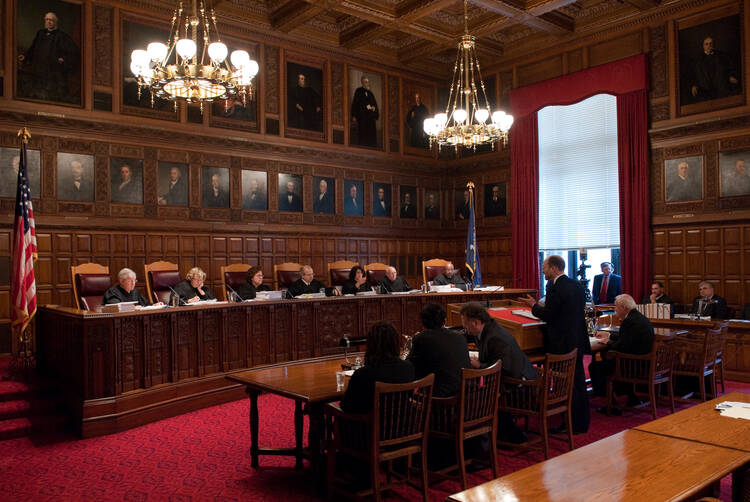ALBANY, N.Y. (AP) — New York's ban on assisted suicide will stand after the state's highest court on Thursday rejected arguments from terminally ill patients who say they should have the right to seek life-ending drugs from a doctor.
The Court of Appeals ruled Thursday that state lawmakers had a rational reason for passing a ban on assisted suicide and that the ban doesn't violate the state constitution.
The case was brought by three people with terminal illnesses. Two have since died. The plaintiffs had argued that the state's existing ban on assisting a suicide shouldn't apply to those seeking merciful ends to incurable illnesses.
The court disagreed, noting that while state law allows terminally ill patients to decline life-sustaining medical assistance, it does not allow anyone to assist in ending patients' lives.
"The assisted suicide statutes apply to anyone who assists an attempted or completed suicide," the court wrote in its unanimous decision. "There are no exceptions."
The decision disappointed groups that have long pushed, unsuccessfully, for legislation that would permit physician-assisted suicide as an option for the terminally ill. They'll try again in January when lawmakers reconvene in Albany.
"We will continue to fight to establish the right to aid in dying in the New York State legislature," said Laurie Leonard, executive director of the group End of Life Choices New York. "So that we can join the six other states and the District of Columbia in which aid in dying is legal."
Critics of proposals to allow physician-assisted suicide were pleased with the ruling.
"The decision is a significant victory for those who would be most at risk of abuse and most susceptible to pressure to take their own lives, including the isolated elderly, persons with disabilities and those who are depressed and overcome with hopelessness," said Kathleen Gallagher of the New York State Catholic Conference.
The bill before lawmakers would allow someone with a terminal illness to request life-ending medication from a physician. Two physicians would have to certify that the patient has a terminal condition and is mentally competent to make the decision. It did not receive a vote last session.
Colorado, Washington, Vermont, California, Oregon and the District of Columbia have laws allowing people to request life-ending medication from physicians. In Montana, a 2009 state Supreme Court decision shielded doctors from prosecution if they help terminally ill patients die.









